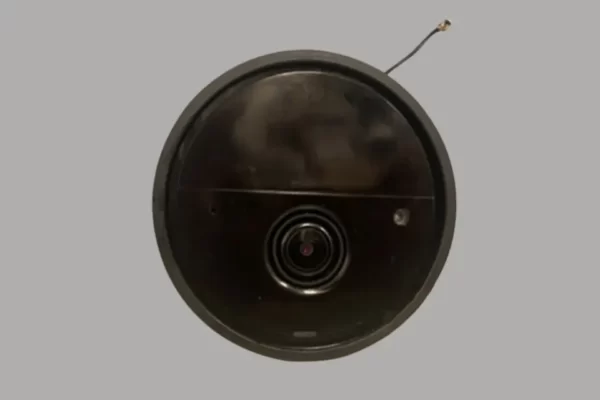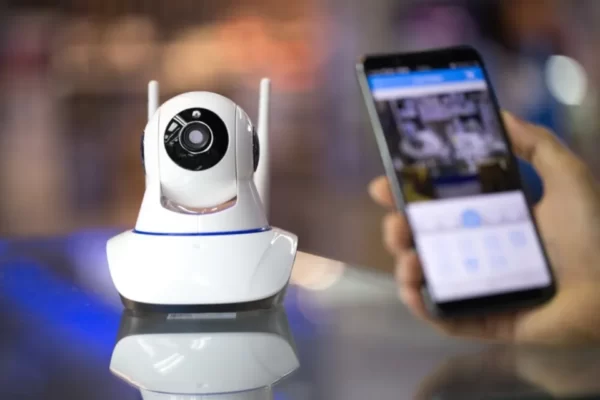Product testing is typically quite easy. You give a router a higher rating and carry on with your day if it is superior and more feature-rich than another router with a comparable price. But on occasion, we produce things that could be harmful to you or to society as a whole. We believe that is the case with Ring, a product owned by Amazon that has ties to law enforcement.
You are automatically signed up for the Neighbors service when you install a Ring camera. (The responsibility lies with you, but you can disable the notifications and integration with the Neighbors feed in the Ring app’s settings.) Neighbors, a stand-alone app, displays an activity feed from all nearby Ring camera owners, including posts about found dogs, stolen hoses, and a Safety Report that displays the number of violent or nonviolent service calls that occurred in the previous week. Additionally, it gives public safety organizations, such as neighborhood police and fire departments, a platform to disseminate information widely.
However, Ring owners can also send videos to law enforcement that they have recorded with their Ring video doorbell cameras and outdoor security cameras.
This is a feature that is exclusive to Ring; in 2020, Nextdoor removed its Forward to Police feature, which allowed users to forward their own safety posts to local law enforcement agencies. If a crime has been committed, law enforcement should get a warrant before viewing any video taken by citizens.
Over the years, Ring has had numerous conversations with members of WIRED’s Gear team about this feature. Even though there is no proof that having more video surveillance footage makes communities safer, the company has made it clear that this is what customers want.
Neighbors instead makes racial profiling more likely. It makes it simpler for both ordinary people and law enforcement organizations to single out particular groups for suspicion of criminal activity based on factors like skin tone, ethnicity, religion, or nation of origin.
Since Ring began working with police departments to distribute free video cameras, we have been concerned about this issue. Law enforcement can submit Requests for Assistance through the Neighbors Public Safety Service (NPSS) in the app, and neighbors can speak with camera owners directly to request footage.
This feature shouldn’t be present, in our opinion. The work of Stanford professor Jennifer Eberhardt, whose research on the psychological links between race and crime earned her a MacArthur Genius grant, was mentioned by Nextdoor CEO Sarah Friar when we asked her about the company’s efforts to reduce racial profiling.
A significant portion of Eberhardt’s research focuses on decision points; the more you can get people to pause and consider their options before acting, the less likely it is that they will act with unconscious racism. It is made simpler for Ring owners to flood law enforcement with unfounded and potentially biased alarms by integrating a frictionless feature directly into Neighbors.
It’s important to remember that law enforcement cannot, under any circumstances, access your private videos or information without your consent. Law enforcement organizations are not allowed to ask for information about legal activities like protesting; instead, they must cite an ongoing investigation that falls within a specific timeframe and geographical area.
Even though this hasn’t stopped Ring in the past, Ring is not permitted to access your video data. The Federal Trade Commission issued the company with a proposed order earlier this year after discovering that the company had improperly permitted employees and contractors to illegally survey customers. The proposed order required the company to delete data from videos that employees had viewed without authorization, issue $5.8 million in consumer refunds, and put in place a strict privacy and security program.
Ring has taken action to allay worries about its dealings with law enforcement. The results of an audit conducted by the Policing Project at the School of Law at New York University, which lasted almost two years, were made public by the company in 2021. Ring changed the rules, including opening up Requests for Assistance, making NPSS a local service, and establishing new posting community standards. As an illustration, reporting emotions is no longer permitted; only facts are. You cannot post video of people just because you are uncomfortable with them.
These effects might have become apparent if you recently logged into Neighbors. When I first tested a Ring camera, Neighbors showed me a weekly crime report of two dozen “police incidents” that had occurred on my street,, which spiked my heart rate and convinced me that we live among criminals in a degenerate society. A recent peek revealed that half of the posts on my neighbors’ feed are now about missing cats, while the other half are mostly from people who are afraid and are reporting gunshots or theft. It’s an improvement.
There is nothing preventing law enforcement from physically canvassing neighborhoods close to a potential crime scene and asking camera owners for video content, whether they own Ring cameras or not. However, this procedure has its own obstacles, such as walking to find pertinent homeowners and going through the subpoenaing of video.
Law enforcement can also access video from security camera manufacturers other than Axis. Google’s Nest claims it reserves the right to provide information to law enforcement through a fairly secretive process. However, Google does not maintain a specific app to facilitate the process, and aside from that, we enjoy using Nest cameras.
That relates to my final point: We also experience issues with Ring’s hardware. The Ring Car Cam doesn’t stop break-ins when the car is off; the security cameras don’t work well, load slowly, and have bulky designs.
Similar to other businesses like Wyze and Eufy, the company typically only fixes security flaws when they are uncovered by outside parties. Since no camera can be guaranteed to be 100% safe, you should think about where you’ll put it before you buy one.
Read More: How to Turn Off Ring Camera?
Source: wired





